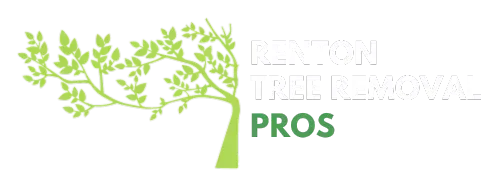BLOG
BLOG
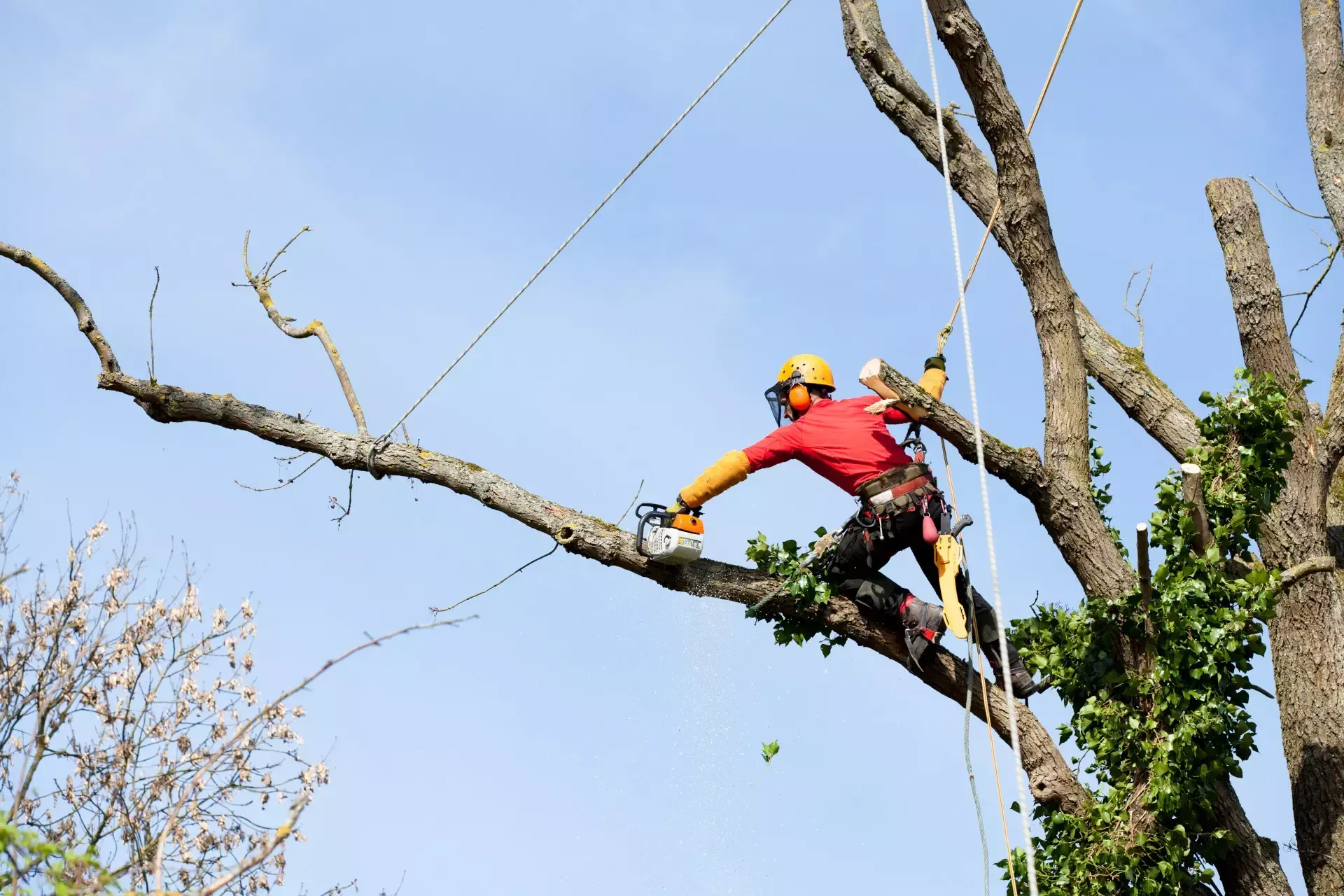
By Adam Victor
•
January 25, 2025
Ever wondered why some trees thrive for decades while others struggle to survive? The secret often lies in professional care. Hiring a certified arborist for a tree arborist consultation Renton is the first step to ensuring your trees' health, safety, and longevity. Understanding the Risks of Poor Tree Care Untrained tree maintenance can lead to unnecessary risks, including damaged property, diseased trees, or even personal injury. A certified arborist provides the expertise needed to prevent these issues, ensuring every aspect of your tree's care is professionally managed. How Renton Tree Removal Pros Can Help At Renton Tree Removal Pros, we specialize in providing expert tree arborist consultation Renton services. Our team offers tailored solutions, from identifying potential hazards to enhancing tree health, helping you maintain a safe and beautiful property. 1. Why Certified Arborists Are Vital for Renton Property Owners In Renton, maintaining healthy trees is essential for safety and property value. Certified arborists bring the expertise necessary to handle the unique challenges of tree care in this area. The Benefits of Certification Certified arborists undergo rigorous training, equipping them with knowledge about tree biology, risk assessment, and proper maintenance techniques. With a professional tree service Renton WA , you gain access to insights that help your trees thrive. 2. Comprehensive Tree Health Assessments A tree arborist consultation Renton includes a detailed evaluation of your trees’ health and structural integrity. From detecting early signs of disease to recommending proactive measures, these assessments are crucial for long-term maintenance. Why It Matters Ignoring tree health issues can lead to costly consequences. Renton Tree Removal Pros offers expert consultations that prioritize early intervention, saving you time and money while preserving your property’s natural beauty. 3. Enhancing Safety and Aesthetic Appeal Overgrown or weakened trees can pose significant risks, particularly in Renton’s climate. Regular care from a certified arborist not only minimizes hazards but also improves your property’s appearance. Local Expertise for Renton Homeowners Our team understands Renton’s unique environmental challenges, from managing storm-prone trees to complying with local regulations. We provide personalized services designed to enhance safety and aesthetics for every property. Pro Tips for Tree Care in Renton Schedule Annual Inspections: Regular evaluations identify potential risks before they escalate. Focus on Preventative Care: Treat early signs of disease or decay promptly. Trust Certified Professionals: Avoid DIY solutions that can harm your trees. Enhance Soil Quality: Healthy soil promotes robust tree growth. Prune Strategically: Proper pruning minimizes stress and encourages healthy development. Frequently Asked Questions Q: What does a tree arborist consultation involve? A: A consultation includes evaluating tree health, identifying risks, and providing maintenance recommendations. Q: How often should I hire a certified arborist? A: Annual inspections are ideal for maintaining tree health and safety. Q: Can you help with emergency tree services? A: Yes, we offer prompt solutions for storm-damaged or hazardous trees. Q: Why should I choose Renton Tree Removal Pros? A: Our certified arborists bring unmatched expertise and a commitment to personalized service. Q: What is the cost of a consultation? A: Costs vary based on property size and tree condition. Contact us for a customized estimate. Why Renton Residents Trust Us Choosing Renton Tree Removal Pros means partnering with a team dedicated to excellence. Our tree service Renton WA solutions are tailored to the needs of local homeowners, ensuring your trees remain healthy and your property safe. About Renton Tree Removal Pros Renton Tree Removal Pros is your trusted provider for professional tree arborist consultation Renton services. With years of experience and a commitment to the Renton community, we deliver exceptional tree care solutions that prioritize safety, aesthetics, and long-term health.
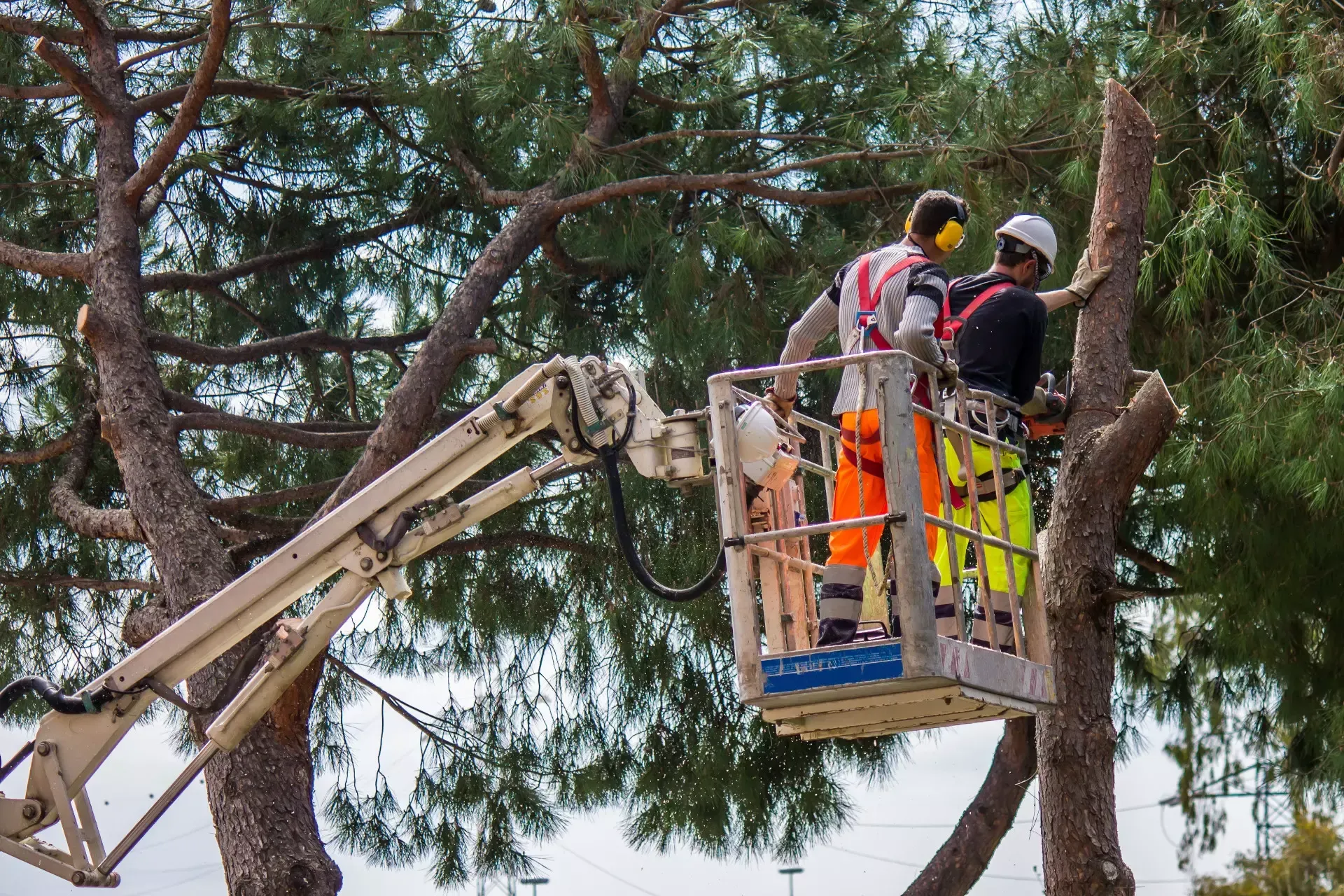
By Renton Tree Removal Pros
•
January 12, 2025
Did you know that trees can experience stress just like humans? Drought and extreme weather conditions can significantly impact their health, potentially leading to long-term damage or even loss. This blog explores how to protect your trees during challenging weather, ensuring they remain strong and vibrant. By the end, you'll have actionable tips and expert advice from the trusted professionals at Renton Tree Removal Pros . Understanding the Problem: Trees and Weather Stress In Renton, WA, trees face unique challenges from fluctuating weather patterns. Drought can deprive them of the water needed to grow, while storms may damage branches or roots. If left unaddressed, these stressors can weaken a tree's structure, making it vulnerable to pests and disease. As a result, property owners are often left wondering how to safeguard their greenery without breaking the bank. Solution Overview: Trusted Tree Care Services in Renton, WA At Renton Tree Removal Pros , we specialize in comprehensive tree care solutions tailored to withstand the challenges of extreme weather. From professional tree trimming Renton to strategic watering plans, we offer services designed to enhance your tree’s health and resilience. Practical Steps to Protect Your Trees 1. Proper Watering Techniques Effective watering is essential during droughts. Deep soak the root zone of your trees once or twice a week to encourage strong roots. Avoid overwatering, as this can suffocate roots and lead to fungal issues. 2. Regular Tree Trimming Renton Trimming helps remove dead or weak branches that might break during storms. It also improves air circulation and reduces the risk of pest infestations. Reach out to Renton Tree Removal Pros for expert trimming services. 3. Mulching for Moisture Retention Applying a layer of mulch around the base of your trees can help retain soil moisture and regulate temperature. Be sure to leave a gap between the mulch and the tree trunk to prevent rot. Why Choose Renton Tree Removal Pros? As a local expert in tree service Renton WA , we pride ourselves on delivering exceptional care for your trees. Our team understands the specific needs of the Renton area, including its climate and common tree species. With services backed by satisfied customers and strong community involvement, we’re here to protect your trees and property. FAQs About Tree Care During Extreme Weather Q1: How often should I water my trees during a drought? Deep water your trees once or twice a week, focusing on the root zone. Q2: Can I trim my trees myself? It’s best to rely on professional tree trimming Renton services to avoid improper cuts that can harm your trees. Q3: What’s the best way to protect trees from storms? Regular trimming and proactive removal of weak branches help minimize storm damage. Q4: Does mulching really help? Yes, mulch helps conserve moisture, reduce temperature stress, and improve soil health. Q5: When should I call a professional for tree care? If you notice dead branches, pest infestations, or unusual growth patterns, contact Renton Tree Removal Pros for an inspection. Conclusion Caring for your trees during drought or extreme weather ensures their longevity and adds value to your property. By understanding the challenges and taking proactive steps, you can keep your trees healthy and thriving. For expert care, reach out to Renton Tree Removal Pros today. About Renton Tree Removal Pros Renton Tree Removal Pros provides professional tree services in Renton, WA. Specializing in tree service Renton WA, tree trimming Renton , and other essential care, we combine expertise with local knowledge to help your trees flourish.
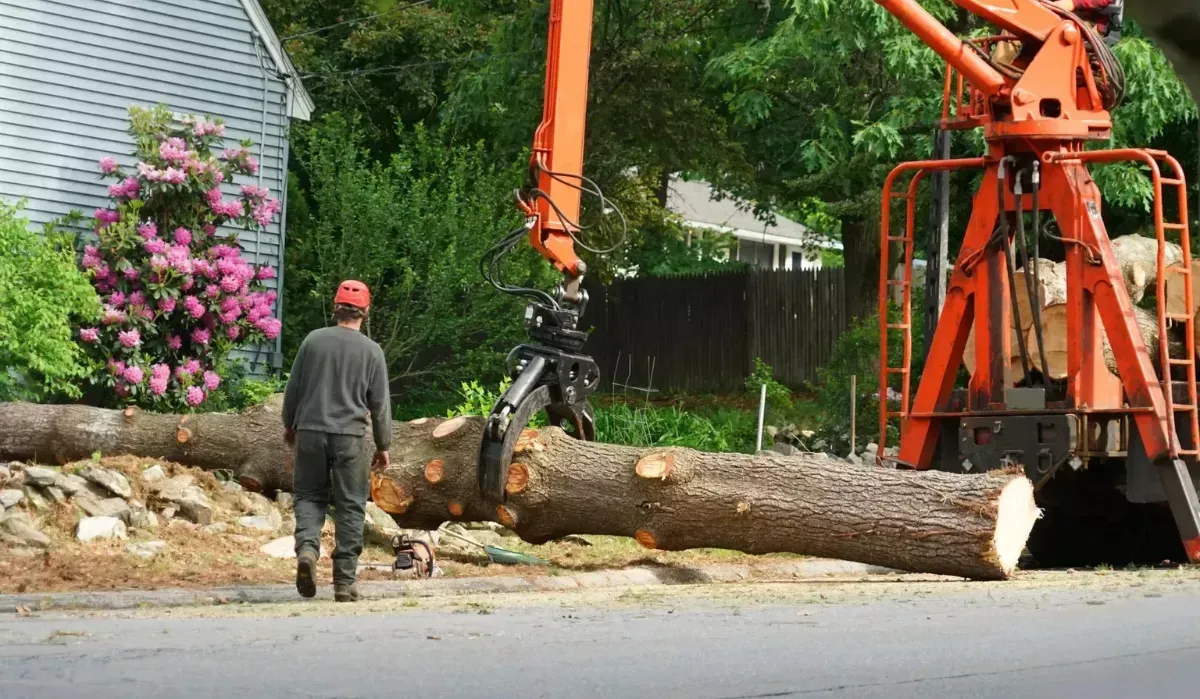
By Renton Tree Removal Pros
•
January 11, 2025
Trees Add Beauty but Also Risks Trees add beauty, shade, and character to your property, but there are times when they pose risks instead of benefits. Recognizing when to remove a tree can protect your home, family, and surrounding landscape. In this guide, we’ll explore the top signs that indicate it’s time to contact a professional tree service Renton WA to address tree removal concerns. Why Tree Removal Matters Trees in decline or structurally unsound can cause significant damage. From property destruction to personal injuries, ignoring the warning signs of a problematic tree can lead to costly consequences. Understanding when to act ensures your property remains safe and visually appealing. Here are the key signs to watch for: 1. Visible Signs of Decay or Disease One of the most common indicators of a tree needing removal is visible decay or disease. Look for: Mushrooms growing at the base of the tree. Cracks or splits in the trunk. Peeling bark or discolored leaves. These symptoms can mean the tree’s structural integrity is compromised, increasing the likelihood of collapse. A quick call for tree removal Renton can help prevent accidents. 2. Leaning or Unstable Trees A tree leaning more than 15 degrees from its vertical position is often unsafe. While some trees naturally grow at an angle, a sudden tilt could mean root damage or soil instability. This situation requires immediate attention from a Renton tree removal expert to avoid property damage. 3. Overgrown or Encroaching Roots Tree roots that grow too close to your home, driveway, or plumbing systems can cause structural damage. Over time, roots can lift concrete, crack foundations, or infiltrate underground pipes. Addressing these issues with tree service Renton WA prevents costly repairs. 4. Dead or Dying Branches Dead branches are more than an eyesore—they pose a danger. Falling limbs can damage vehicles, roofs, and pose risks to people. A professional evaluation helps determine whether the entire tree or just specific branches need removal. 5. Proximity to Power Lines Trees growing too close to power lines are hazardous, especially during storms. Branches can interfere with electrical systems, causing outages or fires. Professional tree removal Renton ensures these safety concerns are mitigated efficiently. 6. Pest Infestations If your tree becomes a haven for termites, beetles, or other pests, it’s likely in decline. Left unchecked, these infestations can spread to nearby trees or even your home. Contacting Renton tree removal professionals is the best course of action to eliminate the problem. 7. Impact of Storm Damage Severe weather can leave trees broken or weakened. Heavy winds, lightning, or snowfall can compromise the tree’s strength. Post-storm assessments by a trusted tree service Renton WA can identify hazardous trees needing removal. Local Expertise and Community Impact Renton Tree Removal Pros has been serving the Renton WA community for years. We’re committed to protecting properties while preserving the beauty of local landscapes. With a focus on safety and efficiency, our team ensures your property remains secure and attractive. Actionable Tips for Property Owners Regularly inspect trees for visible damage or decay. Schedule annual evaluations with certified arborists. Address issues like leaning trees or dead branches promptly. Frequently Asked Questions 1. How do I know if my tree needs removal? Look for signs like decay, leaning, or pest infestations. Consulting a professional can provide clarity. 2. Is it safe to remove a tree myself? Tree removal can be dangerous and is best handled by licensed professionals with the right equipment. 3. How much does tree removal cost in Renton? Costs vary based on the tree’s size and location. Contact Renton Tree Removal Pros for a free estimate. 4. Can I replant a tree after removal? Yes, replanting is an option, but choosing the right species and location is key to long-term success. 5. Do I need a permit for tree removal in Renton WA? Permits may be required for certain trees. Our team can guide you through the process. Conclusion Recognizing when it’s time to remove a tree is essential for maintaining the safety and beauty of your property. If you notice any of the signs discussed above, don’t wait to take action. Renton Tree Removal Pros is here to provide expert tree service Renton WA , ensuring your property remains safe and appealing. Contact us today for a consultation! About Renton Tree Removal Pros Renton Tree Removal Pros is a trusted provider of comprehensive tree care services in Renton WA. With a team of certified professionals, we specialize in tree removal, trimming, and emergency services. Our commitment to safety and customer satisfaction makes us the go-to choice for homeowners and businesses alike.
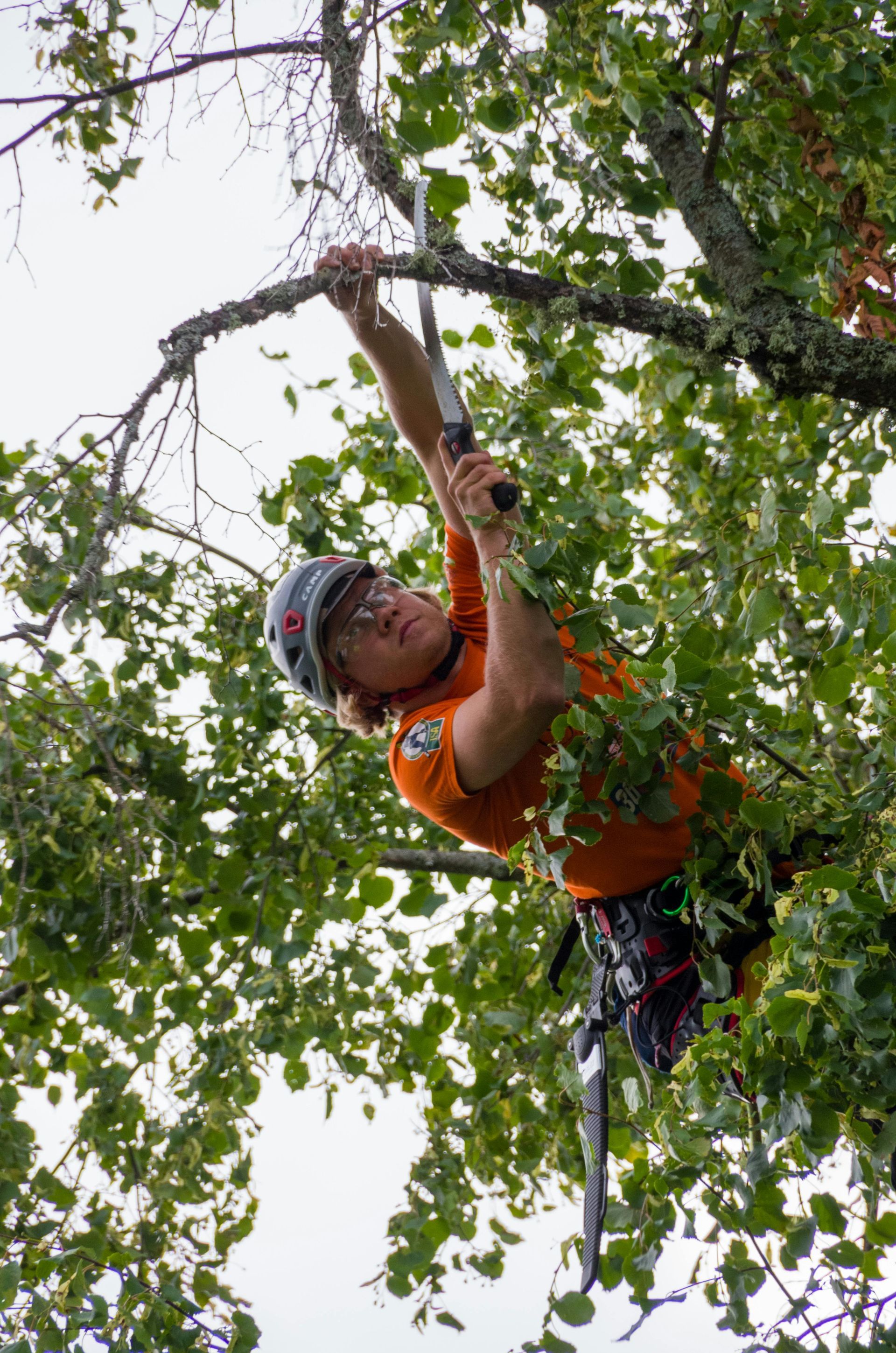
By Xander Victor
•
September 29, 2024
Trees are a beautiful and important part of our outdoor spaces. They offer shade, fresh air, and a touch of nature to our homes. But, like any living thing, trees need care to stay healthy and safe. Regular tree trimming and maintenance are essential to keep them in good shape. At Renton Tree Removal Pros , we understand the value of well-maintained trees and want to share the many benefits of keeping up with tree care. What is Tree Trimming? Tree trimming is the process of cutting away dead, damaged, or overgrown branches from a tree. It’s not just about making your tree look nice—it also helps improve the tree’s health and safety. Whether it’s a small tree in your backyard or a large one near your home, trimming can prevent problems down the road. At Renton Tree Removal Pros, our experienced team knows how to safely and effectively trim trees, ensuring they stay strong and healthy for years to come. Why is Regular Tree Trimming Important? There are several reasons why you should regularly trim and maintain your trees. Below are some of the top benefits: 1. Improves Tree Health Trimming your trees helps remove dead or diseased branches that can harm the rest of the tree. These branches can be a breeding ground for pests or spread diseases, weakening the tree over time. By removing them, you give your tree a better chance to thrive and grow strong. At Renton Tree Removal Pros, we recommend a structure prune every few years to keep your tree in good shape. This helps maintain the tree’s natural form while improving its health and strength. 2. Increases Safety One of the main reasons to stay on top of tree trimming in Renton is to ensure safety. Over time, trees can grow weak or dead branches. These branches can fall during a storm, posing a risk to your home, vehicles, or even people walking by. Regular trimming helps remove these hazards before they become a problem. In a place like Renton, where windstorms are common, it’s important to keep trees trimmed to avoid accidents. Whether it’s preventing a branch from falling or making sure the tree itself is stable, trimming can greatly reduce the risk of damage. 3. Enhances Tree Growth Pruning and trimming aren’t just about cutting away branches—they help the tree grow in the right way. When a tree is left untrimmed, it can grow unevenly, leading to weak spots in the structure. Regular trimming allows the tree to develop a strong, balanced shape, which helps it stay healthy as it grows. For young trees, trimming is especially important. Shaping them early on ensures they grow with a sturdy trunk and well-spaced branches, making them more resilient in the long run. 4. Boosts Curb Appeal Healthy, well-maintained trees add beauty to any property. Overgrown or messy trees, on the other hand, can make your yard look unkempt. Regular tree trimming keeps your yard looking neat and clean, adding to your home’s curb appeal. If you’re thinking of selling your home, a well-maintained landscape can make a big difference. Trees that are regularly trimmed not only look great but also show potential buyers that the property has been well cared for. 5. Promotes Sunlight and Airflow When trees are overgrown, they can block sunlight from reaching your lawn or garden. This can make it hard for grass and other plants to grow. Trimming helps allow more sunlight to filter through, which benefits the plants below and promotes healthy growth all around. In addition to sunlight, pruning also improves air circulation. Better airflow helps reduce the risk of diseases that thrive in damp, shaded areas, keeping both your tree and surrounding plants healthier. How Often Should You Trim Your Trees? How often you should trim your trees depends on their type, size, and health. As a general rule, mature trees need pruning every five to ten years, while younger trees may require trimming every three to five years. It’s also a good idea to have your trees inspected regularly, especially after a storm. At Renton Tree Removal Pros, we offer professional tree assessments to identify any potential risks and recommend the best trimming schedule for your trees. Why Choose Renton Tree Removal Pros? At Renton Tree Removal Pros, we pride ourselves on providing top-quality tree care services. Here’s why we stand out: Expert Team: Our certified arborists are trained in the best tree care practices. We know how to safely and effectively trim trees to promote healthy growth and prevent future problems. Safety First: Tree trimming can be dangerous, especially for larger trees. We use the right equipment and safety measures to ensure that every job is done without risk to your property or our team. Tailored Services: We understand that every tree and yard is different. Our services are customized to meet the unique needs of your trees, whether it’s regular maintenance or a more involved pruning project. Affordable Prices: We believe in offering quality tree care at fair prices. You shouldn’t have to break the bank to keep your trees healthy and safe. More Tree Care Tips While tree trimming is an important part of tree care, there are other things you can do to keep your trees in great shape. Watering during dry spells, adding mulch around the base, and checking for signs of disease are all part of good tree maintenance. If you notice anything unusual, it’s best to consult a professional right away. At Renton Tree Removal Pros, we offer a range of services beyond tree trimming, including tree removal, stump grinding, and emergency tree care. Whether you need a quick trim or a full tree assessment, we’re here to help. Conclusion Regular tree trimming and maintenance are essential for the health and safety of your trees. From improving growth to preventing safety hazards, keeping up with trimming ensures your trees stay strong and beautiful for years to come. At Renton Tree Removal Pros, we’re committed to helping you care for your trees with professional, affordable services. If you’re looking for reliable tree trimming Renton , contact us today to schedule a consultation. Let us help you keep your trees healthy, safe, and looking their best!
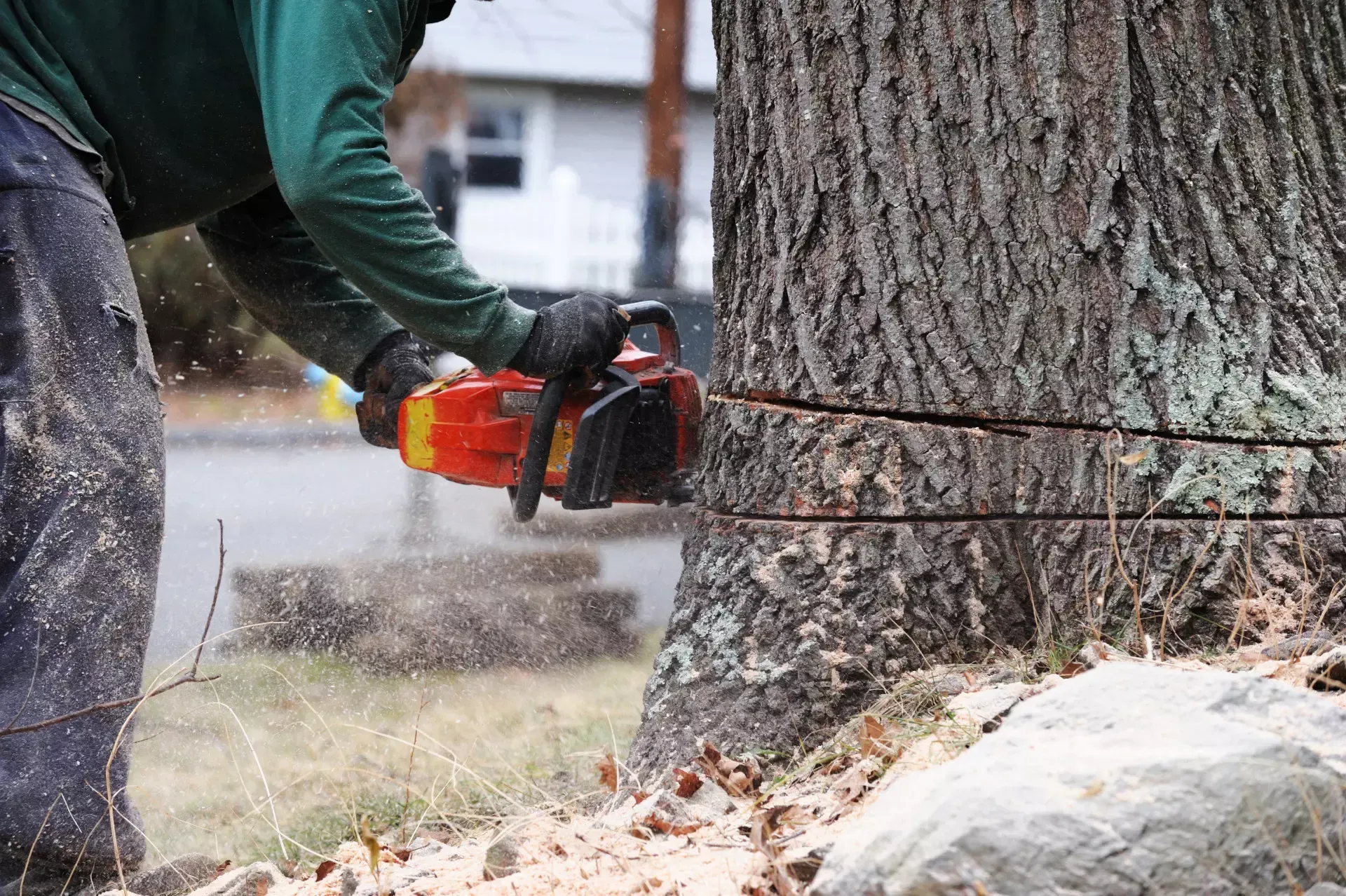
By Xander Victor
•
September 22, 2024
Tree removal is essential when a tree becomes hazardous or interferes with your property. At Renton Tree Removal Pros, we specialize in safe and efficient tree removal services. In this blog, we’ll explore the different types of tree removal and help you understand which method may be best for your needs. Basic Tree Removal This is the most common type of tree removal service. The tree is cut down in sections, starting from the top. This method is typically used when there is enough space around the tree for it to be safely felled. If the tree is near structures like houses, fences, or power lines, the removal must be done with precision to prevent damage. Our team at Renton Tree Removal Pros has years of experience performing basic tree removals in both residential and commercial settings. We take all the necessary precautions to protect your property. Emergency Tree Removal Sometimes, tree removal can’t wait. Storms, strong winds, or lightning can cause trees to fall unexpectedly, creating immediate dangers to homes and other buildings. In these cases, you need fast, emergency tree removal services. Emergency tree removal requires quick thinking and specialized equipment. At Renton Tree Removal Pros, we respond rapidly to emergencies, ensuring that fallen or leaning trees are removed without further risk to your property. Crane-Assisted Tree Removal When a tree is too large or located in a difficult-to-reach area, a crane may be used for removal. Crane-assisted tree removal is ideal for large trees close to buildings or other obstacles. The crane lifts sections of the tree and carefully lowers them to the ground, ensuring that the tree is removed without damaging nearby structures. At Renton Tree Removal Pros, we are trained to operate cranes for tree removal in tight spaces and can handle even the most challenging jobs. Using this method, we ensure that your tree is removed safely and efficiently. Dead Tree Removal Dead trees pose a safety risk since they can fall over without warning. Dead trees are also more brittle and harder to cut, requiring special handling. If you have a dead tree on your property, it’s crucial to have it removed as soon as possible to prevent any accidents. We specialize in dead tree removal services, ensuring that your property stays safe from potential hazards. Our team can assess the health of your trees and recommend the best course of action for removal. Stump Removal and Grinding Once a tree is removed, the stump is often left behind. Stump removal can be challenging, as it involves extracting the tree’s roots from the ground. Stump grinding is a faster and more affordable option, where the stump is ground down to just below the surface of the soil, allowing grass or plants to grow over it. Renton Tree Removal Pros offers both stump removal and stump grinding services. We’ll help you decide which option is best for your yard, ensuring that the area is ready for future landscaping or construction projects. Permits and Regulations It’s essential to know that tree removal in Renton may require a permit, especially if the tree is considered protected or located in a designated area. Before removing any trees, check with your local authorities or consult with Renton Tree Removal Pros. We’ll guide you through the permit process and make sure everything is done legally and safely. When to Remove a Tree Not sure if your tree needs to be removed? Here are some signs that tree removal may be necessary: Diseased or Infested Trees: If your tree is suffering from a disease or insect infestation that cannot be treated, removal may be the only option. Leaning Trees: If a tree starts leaning dangerously, it could pose a threat to nearby structures or pedestrians. Cracked Trunks or Branches: Cracks or splits in the trunk or major branches can weaken the tree, making it more likely to fall. Overgrown Trees: If a tree is growing too close to power lines or your house, it might need to be removed to prevent damage. If you notice any of these signs, call Renton Tree Removal Pros. Our experts can assess the condition of your trees and determine whether removal is necessary. Why Choose Renton Tree Removal Pros? At Renton Tree Removal Pros, we pride ourselves on providing safe, reliable, and affordable tree removal services. Our team of trained professionals uses the latest equipment and techniques to ensure that your trees are removed without causing damage to your property. We also offer: Free Consultations: Not sure if your tree needs to be removed? We’ll come out, assess the situation, and provide a free quote. Licensed and Insured Services: You can trust us to handle the job safely and professionally. 24/7 Emergency Service: If a storm causes a tree to fall unexpectedly, we’re available any time of day or night. Conclusion Tree removal is not a one-size-fits-all service. Depending on the size, location, and condition of your tree, different removal methods may be required. At Renton Tree Removal Pros , we have the experience and tools to handle all types of tree removal, from basic to crane-assisted and everything in between. Whether you need tree removal in Renton for safety reasons or simply to improve the aesthetics of your yard, give us a call. We’ll make sure your tree removal project is done efficiently, safely, and with the utmost care for your property.
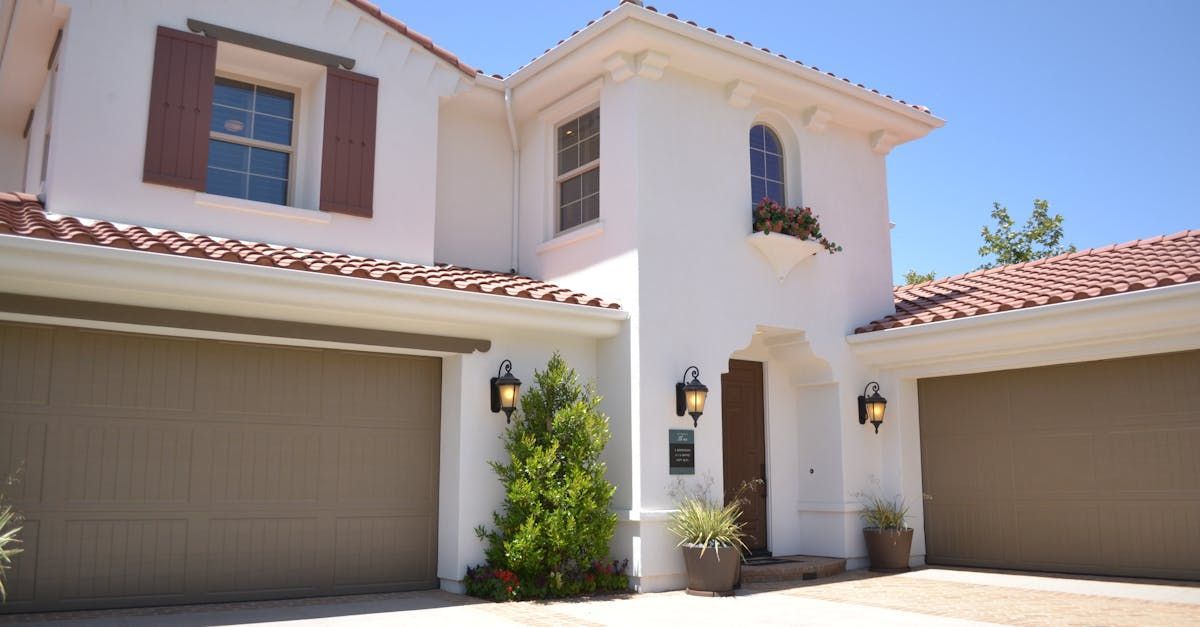
By Christopher Ingison
•
August 17, 2024
Hey there, home improvement enthusiasts! If you're considering a flooring upgrade, you're in the right place. With over 20 years in the flooring business, I've seen a lot of trends come and go. Today, we're diving into two exciting modern flooring options: epoxy flooring and decorative concrete overlays. We'll explore their applications, benefits, and whether they’re a cost-effective alternative to traditional flooring options like hardwood, tile, and carpet. Epoxy Flooring: Durable, Stylish, and Versatile Epoxy flooring is a high-performance option made from a blend of resin and hardeners, creating a tough, plastic-like layer that's both durable and stain-resistant. While it started in commercial and industrial settings, epoxy flooring is now making waves in residential spaces too. Home Applications Epoxy flooring is a fantastic choice for various areas in your home: Garages : Its resistance to oil, gasoline, and other automotive fluids makes it perfect for garages. Plus, it's super easy to clean Basements : Moisture resistance is key here, protecting against dampness and mold. It’s also great for creating a sleek, polished look. Kitchens and Bathrooms : Although less common, epoxy flooring in these areas provides a modern aesthetic with added durability and ease of maintenance Commercial Applications In commercial settings, epoxy flooring really shines: Durability : It can handle heavy foot traffic and equipment movement, making it ideal for offices, warehouses, and industrial facilities Aesthetic Flexibility : With various colors and finishes available, epoxy can enhance modern office designs, from reception areas to conference rooms Ease of Maintenance : The non-porous surface of epoxy floors makes cleaning a breeze, reducing long-term maintenance costs Pros and Cons of Epoxy Flooring Pros: High Durability : Epoxy floors can last between 10-20 years with proper maintenance. Chemical and Stain Resistance : Perfect for areas exposed to harsh chemicals. Customization : Available in a variety of colors and finishes, allowing for a personalized touch. Low Maintenance : Easy to clean and maintain Cons: Installation Complexity : Requires professional installation to ensure proper adhesion and curing. Slipperiness : Can be slippery when wet unless a non-slip additive is used. Yellowing : May yellow over time if exposed to UV light, although UV-resistant topcoats are available Decorative Concrete Overlays: Stylish and Cost-Effective Decorative concrete overlays are used to resurface existing concrete floors, offering a fresh, aesthetically pleasing look without the need for a complete floor replacement. They can mimic the appearance of more expensive materials like stone, brick, or wood, making them a versatile and cost-effective flooring solution. Home Applications These overlays are popular in various residential settings: Living Rooms : Customizable to match any interior design style, from rustic to modern. Patios and Outdoor Spaces : Durable and attractive, perfect for withstanding the elements. Bathrooms and Kitchens : Offer a seamless, waterproof surface that’s easy to clean Commercial Applications In commercial spaces, decorative concrete overlays enhance both aesthetics and functionality: Lobbies and Reception Areas : Create a striking first impression with intricate designs and polished finishes. Retail Spaces : Durable and customizable to fit the brand’s aesthetic. Office Floors : Provide a professional look with minimal maintenance requirements Pros and Cons of Decorative Concrete Overlays Pros: Cost-Effective : Less expensive than replacing entire floors. Customizable : Can mimic various materials and patterns for a unique look. Durable : Resistant to heavy foot traffic and wear. Eco-Friendly : Utilizes existing concrete, reducing the need for new materials Cons: Surface Preparation : Requires thorough cleaning and preparation of the existing concrete surface. Potential for Cracking : Can develop cracks if the underlying concrete shifts or settles. Skilled Installation Needed : Requires professional installation to achieve the desired look and durability Cost-Effectiveness Comparison When comparing the cost-effectiveness of epoxy flooring and decorative concrete overlays with traditional flooring options, several factors come into play: Initial Costs : Traditional flooring materials like hardwood and tile often have higher upfront costs compared to epoxy and decorative concrete Maintenance : Both epoxy and concrete overlays generally require less maintenance, reducing long-term costs. Durability : Epoxy and concrete overlays offer superior durability, potentially leading to fewer replacements and repairs over time. Customization and Aesthetics : While traditional flooring offers a classic look, epoxy and concrete overlays provide modern, customizable aesthetics that can enhance the value and appeal of a space Conclusion Epoxy flooring and decorative concrete overlays present viable, cost-effective alternatives to traditional flooring options. Their durability, low maintenance, and customization capabilities make them suitable for both residential and commercial applications. While they do come with certain installation challenges and potential drawbacks, their overall benefits can make them a worthwhile investment for enhancing the functionality and aesthetics of any space. If you happen to search the Las Vegas area, search for best epoxy garage floor installers near me or try epoxy garage floor installers near me to find the best epoxy flooring solutions in the area. FAQs What are the main benefits of epoxy flooring ? Epoxy flooring is highly durable, stain-resistant, easy to maintain, and customizable in various colors and finishes. It’s suitable for both residential and commercial spaces with high traffic and potential exposure to chemicals. Are decorative concrete overlays durable? Yes, decorative concrete overlays are durable and can withstand heavy foot traffic and wear. They are also customizable, making them a cost-effective option for enhancing the aesthetics of a space. Can epoxy flooring be used in bathrooms? Yes, epoxy flooring can be used in bathrooms. It is water-resistant and provides a seamless surface that is easy to clean. However, it is essential to choose a textured finish to prevent slipperiness when wet. What is the cost of installing epoxy flooring? The cost of epoxy flooring installation varies based on factors such as the size of the area, the type of epoxy used, and labor costs. On average, it can range from $3 to $12 per square foot How long do epoxy floors last? Epoxy floors can last between 10 to 20 years with proper maintenance. Their longevity depends on factors such as foot traffic, exposure to chemicals, and the quality of the installation I hope this helps you make an informed decision on your next flooring project! If you have any questions or need further advice, feel free to reach out to Epoxy Floor Coatings. Happy renovating!

By Renton Tree Removal Pros
•
June 29, 2024
Most homeowners get caught up in issues and misconceptions about tree removal. Environmental issues, safety, and costs are a few of the topics that people are unfamiliar with, thus they are reluctant to remove them. At Renton Tree Removal Pros, we understand all these concerns and clear up any confusion so our customers may make educated choices about tree service Renton WA. Common Concerns About Tree Removal Environmental Impact One of the main concerns is that tree removal harms the ecosystem. Trees are vital because they provide oxygen, clean the air, and sustain animals. However, occasionally removing a tree is beneficial or even required. For example, if a tree is diseased or dying, it can spread illness to other healthy trees and plants. Some trees, by removing them, help to allow more sunlight and enhance better quality soil for other plants to grow. Safety Issues Another big concern with tree removal is the perceived danger in the removal process. Many believe there is a significant "risk" involved due to the possibility of accidents. It should be noted that professional tree removal services adhere to stringent safety protocols to minimize all these risks. At Renton Tree Removal Pros, we take pride in our well-trained team that handles all parts of safe tree service Renton WA. We use innovative equipment and procedures to guarantee safety. Cost Concerns Many people will hesitate whenever tree removal is discussed, simply because of the cost involved in such a process. Some individuals have this wrong impression that tree removal entails an out-of-this-world cost, which is never the case. The real thing is that paying experts to remove trees from your yard is only a tiny fraction of what can be lost should the tree fall and damage houses and other valuable properties within the vicinity. Most tree removal companies have reasonable prices and payment options for various customers. Myths About Tree Removal Trees Will Grow Again On Its Own It is a misconception that trees grow by themselves into healthy ones after they are cut. Though some species grow from stumps, it is not a guaranteed and sustainable way of regrowing trees. A replanted tree requires care in its early stages to grow well and serve the environment effectively. All Trees Need To Be Removed Not all trees have to be removed. There are also those trees whose removals are regulated by the local authority, and, in this case, permission is required for one to remove the tree. The trees may not necessarily have to be removed but instead pruned or serviced differently in some instances. A professional company like Renton Tree Removal Pros can teach you to manage each scenario while adhering to the law. We also help you maintain your yard in excellent condition. Tree Removal Can Be Done By Anyone Most homeowners see tree service Renton WA, as a self-contained and uncomplicated DIY project. These myths can be dangerous because tree removal is a very complicated job. It requires special techniques and advanced tools to do it safely and effectively. So, these professionals are trained to check the status of the tree, plan the removal, and do the art without causing any injuries or damage. A severe accident and extra costs may be incurred if one tries to cut a tree without enough knowledge and equipment. Conclusion Understanding the realities of tree removal is crucial for making informed decisions. Misconceptions about environmental impact, safety, and cost can prevent homeowners from taking necessary actions, potentially putting their property and well-being at risk. Renton Tree Removal Pros is committed to addressing these issues and offering skilled, safe, affordable tree removal services. Our team of specialists is equipped to manage all aspects of tree removal, ensuring your property is safe and healthy. Trust us to give excellent service and peace of mind. Visit our website's About Us page for more information about our extensive variety of services.
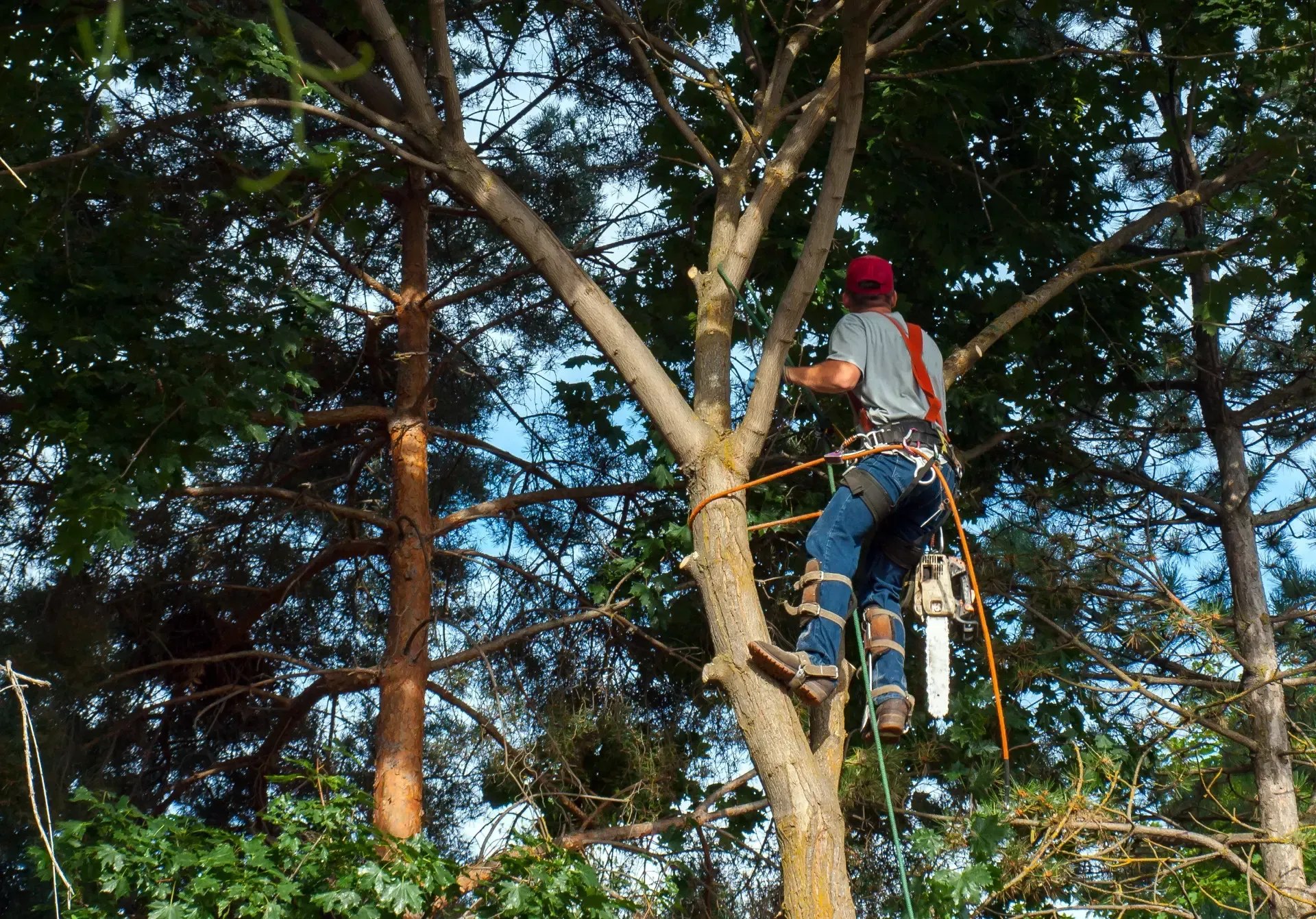
By Renton Tree Removal Pros
•
June 29, 2024
Welcome to Renton Tree Removal Pros! Our primary purpose is securing your property and keeping it well maintained. Trees have many benefits; they shade, add beauty to your home, and increase its worth. But sometimes, trees can become dangerous and harm your property or safety. It is important to identify and fix these problems immediately to prevent accidents and damage. In this blog, we will talk about how to spot dangerous trees and when tree removal Renton might be necessary to ensure they do not cause any trouble. Understanding Tree Hazards A tree hazard is a circumstance that raises the likelihood of a tree falling and causing property damage or injury. Disease, structural flaws, or environmental stress may all render a tree unsafe. If you can spot these dangers early on, you can save thousands of dollars on costly repairs while also making your surroundings safer. Common Signs Of Tree Hazards Leaning Trees A leaning tree is a sure indicator of future problems. While some varieties of trees grow in an angled standing position by nature, a sudden lean will mean there are root or structural problems. Take note of any changes to the posture of the tree. If this is coupled with exposed roots or even cracked soil around the tree's base, be careful regarding the lean. Dead Or Decaying Wood Deadwood presents a significant hazard as it will readily break and fall. Inspect trees for limbs with no leaves, even in the most active growing season, or spots the trunk showing dry, brittle-looking areas. Decay is often visible as soft, crumbly wood or areas of missing bark. Cracks And Splits Vertical cracks are splits where a branch meets the trunk. Horizontal cracks are lines that run across the trunk or major branches, making the tree weaker and more likely to break. Look closely at your trees for these vertical and horizontal cracks, as well as splits where branches connect to the trunk. These splits and cracks are common signs of internal damage and can cause the tree to fail. Fungal Growth Fungal growth of any kind, growing in or off a tree-it can look like mushrooms or conks-is one of the surest signs of decay inside the tree. Such fungi digest wood while breaking it down, thus weakening the tree structure. Therefore, any unnatural growth on your tree should be inspected by an expert. Root Damage Roots anchor a tree in place, and injury to them can have a significant impact on its health and safety. Watch for warning signs such as exposed or damaged roots, cracks in the soil, or the presence of heaved-up sidewalks and drive ways near the tree. Construction activities and changes in landscapes can also damage the roots. Steps To Take If You Identify A Hazardous Tree Evaluate The Risk Once found, evaluate the danger they pose to people and other buildings. Consider the size of a tree, where it is, and, more importantly, what it may strike if it falls. High-risk trees: near buildings, walkways, or power lines will require immediate attention. Consult Professionals Tree dangers may be complex, so it is essential to consult with experts for an informed assessment. Renton Tree Removal Pros has tree health assessment specialists who can provide appropriate measures or remedies for each circumstance. Tree Removal Process It is best to remove it if it is a hazardous tree. Removal of the tree follows a systematic procedure through our experts here at Renton Tree Removal Pros to ensure it is safe and efficient, from securing the area to using special gear and responsible disposal of the tree. Preventive Measures Prevention of future tree hazards includes routine maintenance and monitoring. Prune trees to remove dead or weak branches, provide proper water and nutrient levels, and preserve the root zone. Regular expert inspections will help spot problems early on. Conclusion Recognizing and handling tree hazards is essential for maintaining a safe and beautiful property. The typical warning signs of tree hazards will prompt you to know when to seek professional help so your loved ones are kept safely in your home. Once any of the discussed warning signs are noted in your trees, do not delay contacting the experts here at Renton Tree Removal Pros for advice and services. For more information on how we can help you with tree hazard recognition and tree removal Renton, visit our About Us page.
CONTACT US
Contact Us
Thank you for contacting us.
We will get back to you as soon as possible.
We will get back to you as soon as possible.
Oops, there was an error sending your message.
Please try again later.
Please try again later.
All Rights Reserved | Renton Tree Removal Pros
